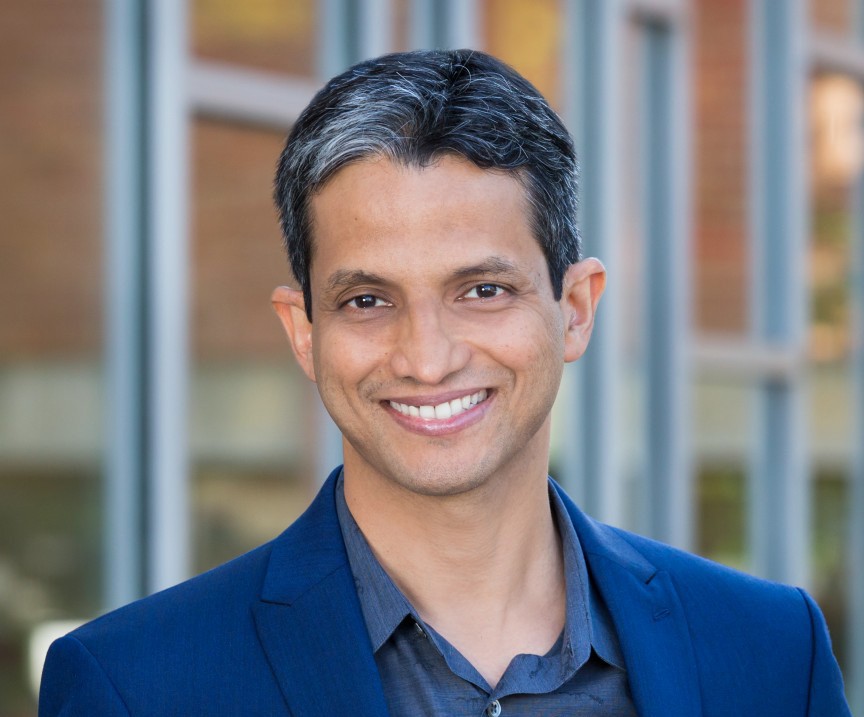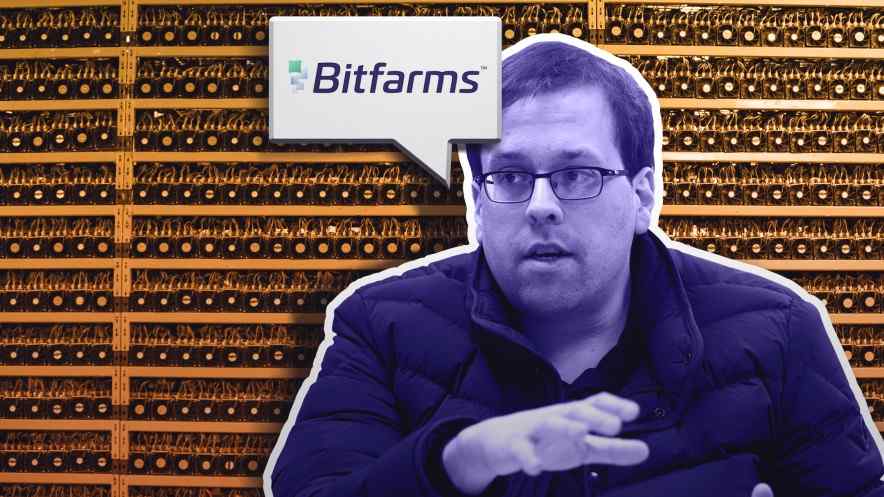Bitcoin Mining Part 2: An Insightful Interview with TMGcore’s JD Enright
Oct 25, 2018, 4:53pm
Join us as we dig into the North American mining industry with the CEO of one of the most ambitious U.S. mining operations, TMGcore.
In our previous article, Bitcoin Mining Part 1: Decentralization, Nationalism and the Future of Blockchain, we explored the Bitcoin mining ecosystem to help our readers to better understand the backbone of the Bitcoin Network. We touched upon the concept of decentralization, gave an overview of what Bitcoin mining is, and reviewed the evolution of the mining industry since Bitcoin’s inception. We also explored the potential threat posed by the growing influence of the Chinese-based mining giant Bitmain and investigated what the continued geo-centralization of Bitcoin hashrate could mean for the future of the network.
For this and the following special features, we reached out to two of North America’s leading mining operations to bring you their perspective on the state of the industry, and to give us an inside look into recent innovations and economic advantages their operations are bringing to the nascent mining industry in North America.
We first talked to TMGcore, a Texas-based Bitcoin mining firm that looks to develop a cryptocurrency mining infrastructure capable of creating a highly-efficient environment for large-scale cryptocurrency mining operations. TMGcore’s infrastructure design pivots on the Company’s “two-phase liquid immersion” technology, and a highly-efficient power system design. TMGcore has coupled their liquid-cooling technology with partnerships and collaborations with mining industry professionals, creating a deep understanding of how to build a flourishing mining ecosystem within the United States, and allowing TMGcore to emerge as “one of the world’s most advanced blockchain technology companies”.
TMGcore: An Insightful Interview With CEO JD Enright
Let us first introduce, John-David Enright, The CEO of the American mining firm “TMGcore”. He has over 27 years of experience working with DOD, Multinational Private and Public sector organizations. Throughout his career, his primary focus has been developing and executing strategic step-up growth initiatives in emerging markets and technologies. He has specialized leadership in global blockchain development strategies, biotechnology, viral cell and Gene therapies and market intelligence assimilation. Prior to TMGcore, JD was the Head of Global Strategic Growth Investments for Lonza AG. A company with a $17B CHF market cap based in Basel, Switzerland.

What follows are CEO JD Enright’s responses to our questions about TMGcore’s innovative approach to cryptocurrency mining, and insights into how one of the top blockchain professionals in the U.S. views the future of blockchain technology.
Through previous correspondence with us, a TMGcore representative has explained that the company aims to make Bitcoin mining more efficient through a new technology called “Two Phase Liquid Immersion”.
- Could you describe this process and how it differs from the mining methods currently used globally?
- Can you describe how Two-Phase Liquid Immersion (TPLI) can help grow the greater mining industry, and how TPLI technology can be used to open new opportunities for Bitcoin miners who are looking to expand their business or cut down costs?
I’ll start by clarifying that liquid cooling has been around in data center processing for some time and two-phase liquid cooling has been around for about two years. It is only recently that TMGcore has starting [sic] using it at an industrial scale, specifically for cryptocurrency mining.
This method works really for running large miners because you do not need to employ large air cooling systems, cutting down a big capital expenditure. Running sophisticated air cooling systems takes up a lot of electricity and that is on top of the actual electricity needed to run the computers that make computations. It also allows miners to control their environment. By using two-phase liquid immersion, you can now mine in any climate because you no longer need to keep the outdoor temperature down to limit air cooling costs. The outdoor temperature is rendered irrelevant.
The following quote from TMGcore CEO JD Enright stresses the importance of promoting an American presence in the Bitcoin mining industry. The concerns expressed indicate TMGcore believes the Bitcoin blockchain is at risk of centralization as Bitmain continues to gain traction in the Bitcoin mining industry,
Bitmain already controls 46% of the global Bitcoin hashing power and 70% of the mining technology sales. If they continue to be allowed to grow in this space, the Bitcoin blockchain will no longer be decentralized and will become a centralized blockchain with a Chinese government sponsored company controlling it all. The United States in particular, needs to step up and gain American-owned and operated mining capacity before it is too late. American institutional capital also needs to wake up and invest in American companies in the space. It is important for the growth of Bitcoin and other cryptocurrencies that the hashing power remains decentralized.
- Could you describe how TMGcore intends on building-up American mining capacity?
- Can you describe what type of risk is posed by Bitmain’s continued growth?
TMGcore is taking a two-pronged approach to help build up American mining capacity. First, we want to make sure other American-based miners have access to high-quality, low cost computing technology. This type of technology, made possible through Two-Phase Liquid Immersion, limits the geographic conditions required to run a profitable mining node. The second prong is increased collaboration with other mid-to-large scale American-based mining companies (of which there are not many!) to better develop American infrastructure when it comes to blockchain mining.
Part of this infrastructure entails working together with power distributors to negotiate better energy rates, sharing better practices and techniques between nodes and tapping into the vast stores of under-utilized green energy that have been created, but not used to its full capacity.
For your second question, there are a number of risks in the increasing centralization of hashing power with a company like Bitmain. When a single entity controls 45-50% of hashing power, they have immense control over the transaction speeds of the entire network. For example, if they decide to turn off their machines, the Bitcoin blockchain would lose half of its capacity instantly.
Bitmain got into this position through very generous power subsidies and other benefits given to them by the Chinese government and through those advantages, they have been able to create and control almost all of the access to the mining equipment that other miners rely on. It is because of this cash flow, they are able to expand into other countries and do so at a loss.
Their recent expansion into Texas will not be profitable. We’ve looked at the numbers and air-cooled mining does not make sense unless you are getting free power or have access to extremely efficient equipment and operate in a climate where you don’t need to put every air cooling system in place. A place like Texas does not have those factors – their electricity costs will be higher, labor costs will be significantly more in the United States, and they will be required to build their facility to the structure, plumbing and safety codes required by the state of Texas. All of those requirements add up to the point where they will almost assuredly lose money on this venture but it’s off-set by the revenue they generate in China. Because of this, they can take those loses in an effort to control more nodes in various geographic locations.”
Do you believe the greater Bitcoin community needs to intervene before centralization becomes a reality, and if so in what way? do you think governmental intervention is also necessary?
It’s a great question but impossible to do because of the decentralized nature of blockchain. There is no way to directly control this infrastructure and one of the main reasons why we love blockchain’s potential. The only way to “intervene” is to dilute their hashing power.
The way the government can help is by putting policies in place that make it more profitable to mine. The United States Government, for example, should intervene and provide favorable energy rates to small and mid-sized mining nodes and all investors, who care about decentralization, should invest in competitors to keep entities like Bitmain from controlling all the hashing power. These investors should also invest in alternative mining supplies so nodes have other options to buy equipment from places other than Bitmain’s. Bitmain’s advantage in the space provides a lot of cash flow that funds their rapid expansion and the high investment required to develop new mining equipment makes it unprofitable for competitors to create new technologies.
It is my understanding TMGcore is already running a 150000 sq/ft facility.
- What is TMGcore’s strategic growth plan? (please comment on your plans to launch another mining pool, LEGACYII next year, which will solely use renewable energy.)
- With such ambitious plans for expansion in TMGcore’s future, how does the company plan to mitigate becoming a potential source of centralization within the Bitcoin mining ecosystem (like Bitmain)?
Our roadmap includes developing methods to become even more energy efficient, including establishing the first mining pool powered by renewable energy. We’re also currently in the final discussions with a renewable energy partner as we expand to launch LEGACYII, a 100% renewable energy powered operation.
To your second question, the reality is we will never get to the scale of Bitmain, despite how aggressively we grow. Between our current LEGACY1 facility and full build-out of LEGACYII, we are only talking about 200 megawatts of power. This is a drop in the bucket when you look at how many megawatts Bitmain produces around the globe. While we are looking to keep expanding over the next 4-5 years, this is not going to be anything near the controlling share that Bitmain was able to get to through state-sponsored energy and early adoption. Our ethos also differs from Bitmain in that we share our technology and information with other nodes so we can maintain the decentralized nature of blockchain ecosystems and not get into the current situation we find ourselves in.
There is an obvious pro-American sentiment in your supplied quote.
- Could you comment on how geopolitics influence the Bitcoin ecosystem?
- Does TMGcore work alongside any other American or international businesses?
- Could you describe why Americans should support Bitcoin mining or blockchain industries?
- What sorts of economic benefits does Bitcoin mining create for Americans?
We have a pro-American sentiment because we are trying to encourage Americans to get into the cryptocurrency game. The United States has been very late to the table when compared to countries in Asia and Europe. Citizens in those countries are very comfortable with the idea of digital currency either because the FIAT in their country is unstable or because the lack of government intervention with cryptocurrency allows them to move money freely.
America doesn’t have those conditions. The dollar is relatively strong and the economy, for the most part is stable. Because of that, those who control the wealth in this country have not had the urgency to educate themselves on digital assets. The entire idea of managing wealth through digital assets, in fact, makes many people uncomfortable.
But the important fact here is that blockchain technology is far more than just cryptocurrency. We are not advocating for any particular token to replace the dollar. The importance for Americans in adopting blockchain’s potential is in its ability to help everyone quickly transact and miners, like TMGcore, help power that transaction network. There are significant cost savings for everyone if we used blockchain to validate our financial transactions. For example, if we could buy a property and transfer ownership of that asset over the blockchain, it would cost a few cents in gas fees as opposed to hundreds of dollars in escrow fees. That should make every American salivate.
We see blockchain growing to the point where these transactions become more and more prevalent in our lives but we as a country need to establish the infrastructure to handle all of these transactions before we can reap the benefits. It is the same way in which we needed to install fiber optic cables to every home and apartment before we could partake in every entertainment option that the internet provides. In order for blockchain to revolutionize transactions in this country, we need to have many different nodes online to verify the vast amount of transactions coming to the different blockchain ecosystems soon.
Time and again, we see blockchain/cryptocurrency focused businesses being pushed back by the government regulations of their respective countries.
- Can you describe how regulations affect TMGcore in the U.S.?
- Does TMGcore have any recommendations for U.S. authorities in regard to fostering and supporting the blockchain industry?
Increased regulation further supports us. There are a lot of bad actors out there and we embrace regulation for the fair guardrails they provide. We are positioned to only take investments from institutional investors and view it as important to pay our share of taxes. We want to actively work with the government and its various industries to create an environment that benefits blockchain infrastructure for years to come.
Through JD Enright’s responses to our questions, we can see a definitively optimistic view for the future of cryptocurrency mining and blockchain technology gradually forming. TMGcore is building an ambitious and foundational ecosystem that looks to not only grow the Bitcoin and cryptocurrency mining industry in the U.S., but to further the development of nascent blockchain industry as a whole. While companies like Bitmain may pose a threat to the decentralization of the Bitcoin network through their eager pursuit of hashing power, companies like TMGcore show us that decentralized blockchain technology is just beginning to evolve, and as blockchain technology emerges as potentially one of the most revolutionary financial technologies to date, TMGcore is helping to shift the industry’s paradigm with a distinct “integrity-over-profit” philosophy.
Moving on with our Bitcoin mining series, in the next and third part we will speak with representatives from Bitfarms, another industry leading mining operation based in Quebec, Canada. In our interview, we will explore how the emerging mining and blockchain industry in Quebec looks to bring economic benefits to the province, and we will take an inside look at one of the fastest growing blockchain economies in the world.
Don’t forget to check out the first part of this series: Bitcoin Mining Part 1: Decentralization, Nationalism and the Future of Blockchain.





